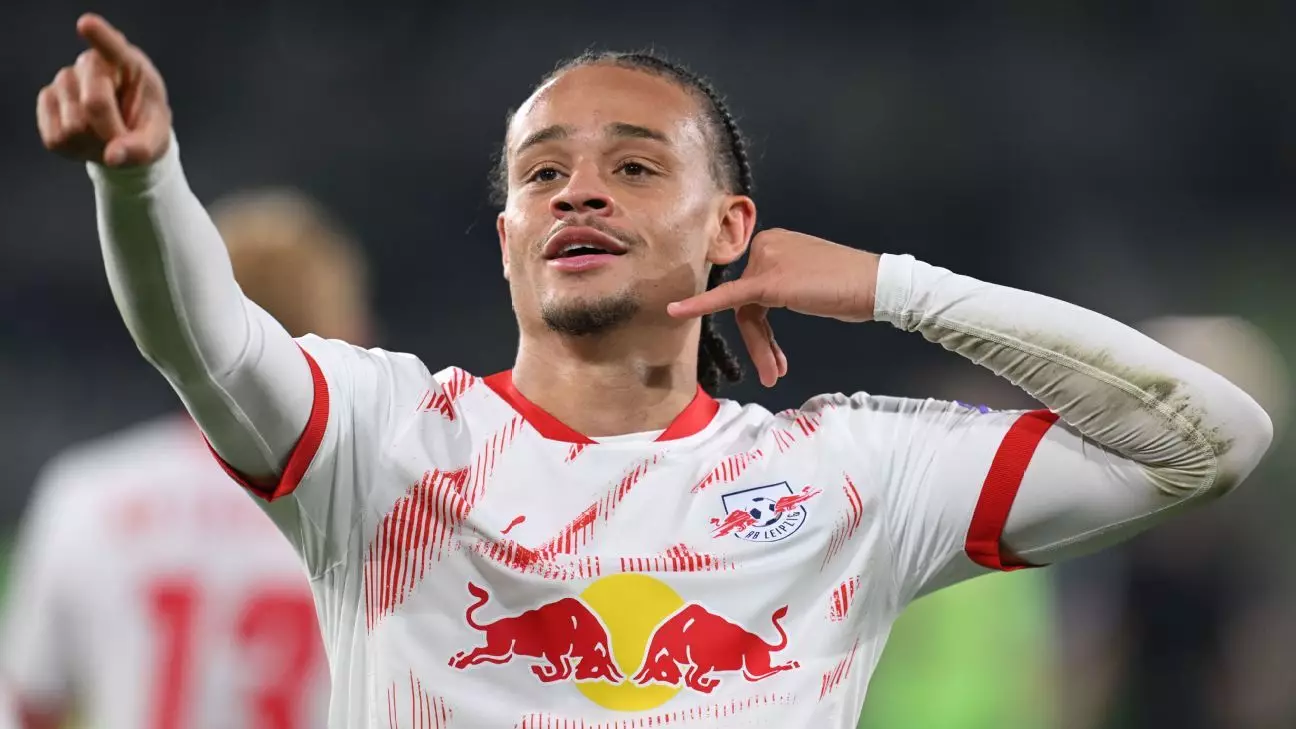As the football world braces itself for another riveting transfer window, the buzz surrounding coveted players is reaching a fever pitch. Manchester United and FC Barcelona, two of the most storied clubs in football, are eager to bolster their ranks. While Manchester United has set its sights on the electrifying Xavi Simons of RB Leipzig, Barcelona appears poised to make a strategic move for Bayer Leverkusen’s solid center-back, Jonathan Tah. Both clubs are at pivotal crossroads, where their actions could significantly alter their trajectories for the upcoming season and beyond.
Xavi Simons: The Next Golden Boy?
Xavi Simons, a name that has become synonymous with flair and creativity since his debut, is attracting attention from Old Trafford. With a remarkable tally of 14 goals in just 21 Bundesliga appearances, the 21-year-old attacking midfielder has delivered performances that make him a tantalizing prospect for Manchester United’s offense. However, a transfer is not merely about talent; it hinges on the club’s ability to secure European football next season. Reports suggest that securing a place in the UEFA Champions League is a prerequisite for United to compete effectively with Liverpool and Manchester City for Simons’ signature.
What makes Simons particularly compelling is his adaptability and fit within manager Ruben Amorim’s tactical framework. This raises an interesting point about the modern football landscape: clubs no longer merely seek star players; they are hunting for those who can slot seamlessly into a specific system. United’s approach illustrates a strategic shift that prioritizes comprehensive fit over individual stardom.
Barcelona’s Defensive Reinforcement: The Jonathan Tah Strategy
On the opposite end, Barcelona is eyeing Jonathan Tah as a potential cornerstone for their defensive line-up. With their forward players exhibiting record-breaking forms, reinforcing the defense has become a priority. Tah, who is on the brink of becoming a free agent this summer, represents an astute acquisition – one that could enhance Barcelona’s defensive resolve without an exorbitant transfer fee. This strategy exemplifies a broader trend where clubs are increasingly targeting players who are on contract expirations for cost-effective reinforcements.
Barcelona’s tactical evolution post-Laporta reflects a firm acknowledgment: the need for a solid backbone is just as crucial as a prolific striking force. Tah, at 29, would bring both experience and solidity to a side desperate to reclaim its glory days. His presence could tackle not only immediate defensive frailties but also serve as a leadership figure in a team full of young talent.
Emerging Talents and Untapped Markets
The transfer window is not solely a game of big names; emerging talents are also redefining the landscape. Southampton’s 19-year-old winger, Tyler Dibling, is catching the attention of RB Leipzig, who appear ahead of competitors like Bayern Munich and Tottenham in the race for his signature. This trend indicates a shift in focus towards developing younger, homegrown talent rather than solely relying on established players. Such moves could be pivotal for clubs looking to maximize long-term success while maintaining financial sustainability.
Moreover, Bayern Munich’s Leon Goretzka is asserting his preference to remain a vital cog in the Bayern machinery, deflecting interest from Manchester United. With his contract running until 2026, his situation underscores the challenge of navigating player loyalty amid the allure of lucrative offers from other giants. It can often feel like a balancing act for players caught between ambition and devotion.
Juventus to Lock in Chelsea’s Renato Veiga
Lastly, Juventus is keen on securing a permanent deal for Chelsea defender Renato Veiga. The Bianconeri’s approach — acting swiftly to incorporate Veiga into their squad for the FIFA Club World Cup — highlights an increasingly aggressive market strategy, with clubs eager not just to strengthen but to assess player compatibility at the highest level. Negotiating down the valuation from Chelsea’s €50m is a trial in resourcefulness that also reflects the nuanced complexities and negotiations that underpin the transfer dealings of modern football.
This transformative phase of strategic signings in football is pregnant with potential and opportunities that could redefine the fortunes of clubs across Europe. As the clock ticks towards the next transfer window, fans, analysts, and clubs alike are poised – each hopeful for a marvel that could change their team’s destiny.

